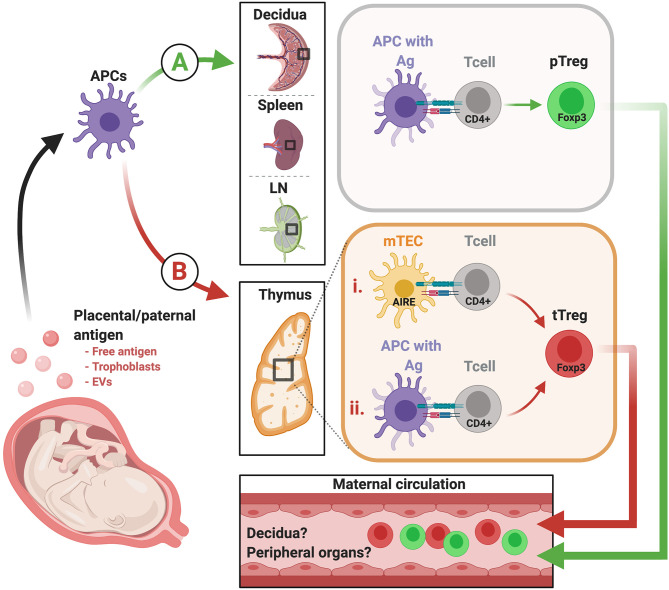Figure 1.
Proposed model of how fetus-specific and paternally-inherited antigens can contribute to pTReg and tTReg development. Fetal and placental antigens that elicit maternal T cell reactivity include those that are paternally-inherited and thus foreign to the maternal immune system, and may also include antigens restricted to fetal and placental tissues. These antigens may arise from chorionic villi, extravillous trophoblast cells, or both, and can be released in the form of whole cells (microchimerism), EVs, and/or as free soluble antigen. From there, placental antigens may prompt TReg development in either or both of two possible pathways. (A) Placental antigens may be presented by maternal APCs in the decidua, and/or drain into maternal blood and lymphatic vessels to access the spleen and uterus-draining LN. At these sites, they can be processed and indirectly presented in the context of maternal MHC to elicit fetal antigen-specific pTReg. (B) It is also possible that tTReg are elicited in the thymus via two potential mechanisms. (i) Placenta/fetus-specific antigens may be expressed and presented directly by mTECs under the control of Aire. (ii) Alternatively, these antigens, and/or placentally-derived antigens accessing the thymus via the vasculature, may be indirectly presented via resident APC in the thymus. EVs, extracellular vesicles; APC, antigen presenting cells; LN, lymph nodes; MHC, major histocompatibility complex; pTReg, peripherally-induced TReg; tTReg, thymus-derived TReg. Created with BioRender.

